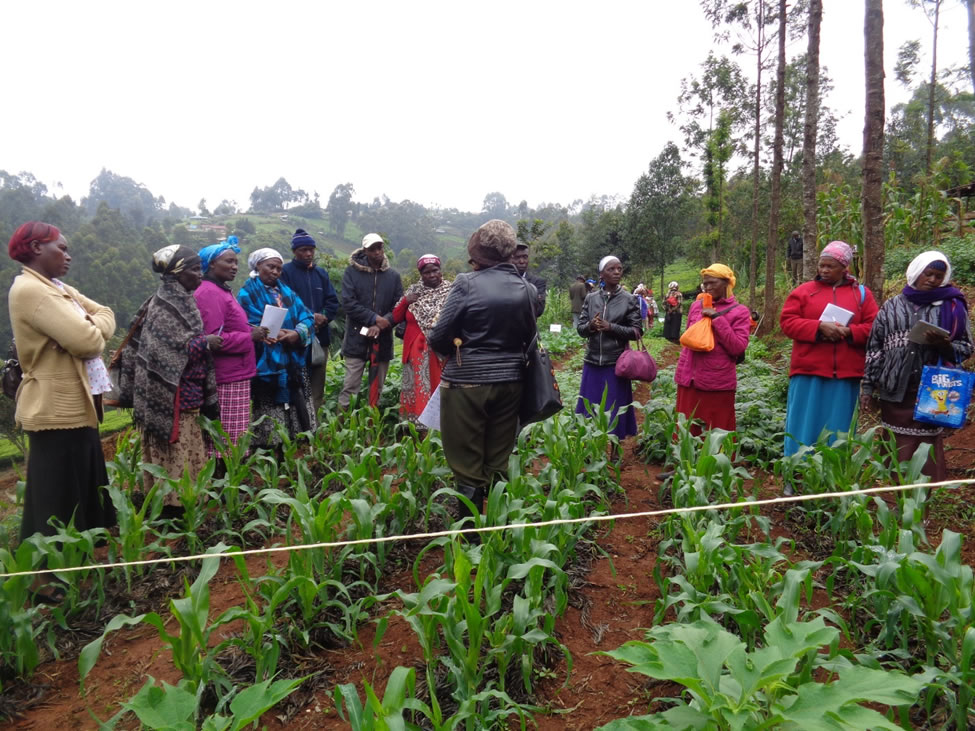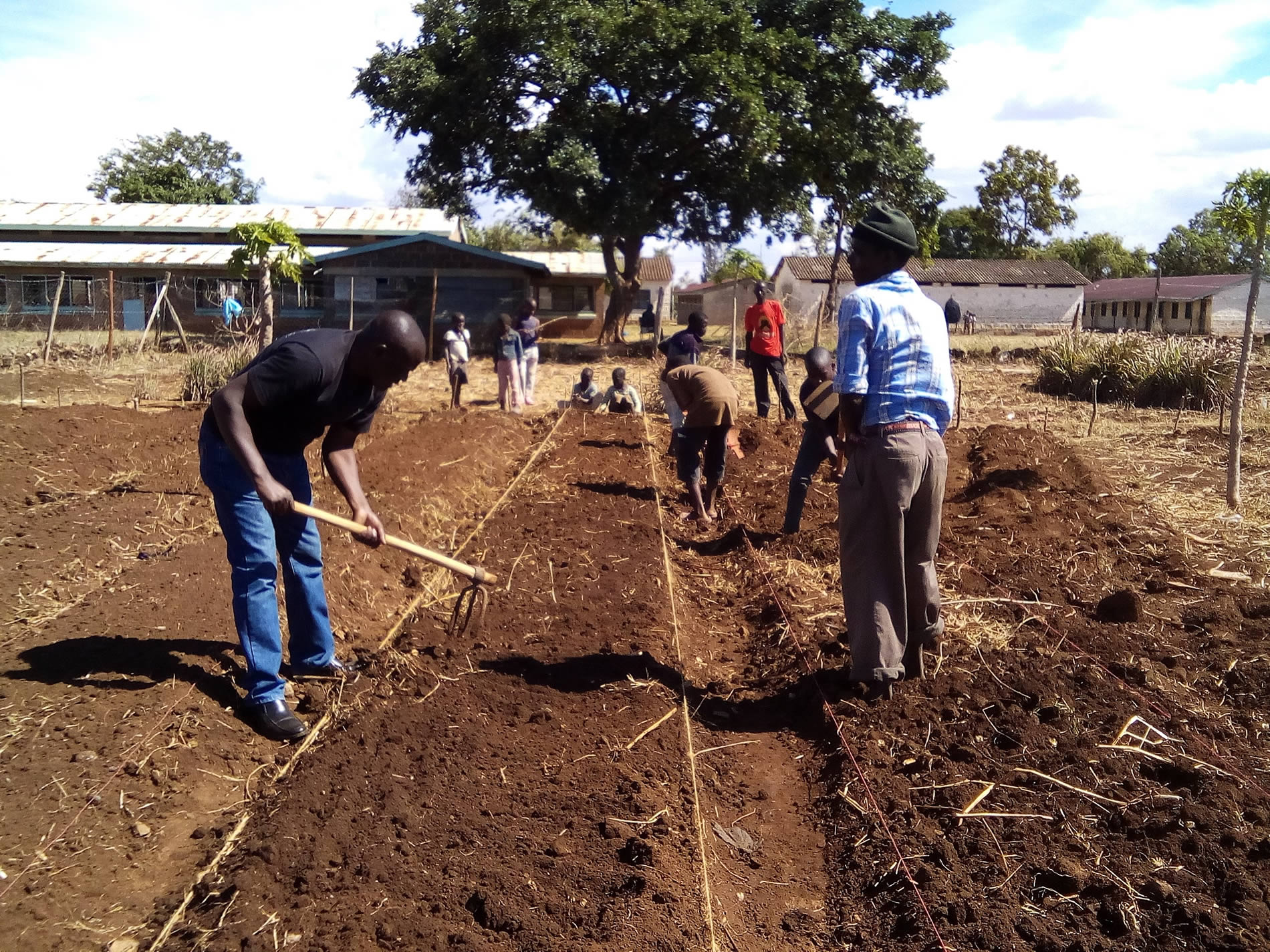In Learning Institutions
SCOPE Kenya works with schools and learning institutions to embed sustainability, ecological conservation, and nutrition-sensitive agriculture into education. Our programs transform schools into centers of learning and action—where young people, teachers, and communities collaborate to grow food, protect nature, and build resilient futures. Each initiative below contributes to creating a generation of environmentally conscious citizens who understand the link between education, ecology, and food security.
1. Schools Promoting Ecological Conservation and Food Security
SCOPE Kenya partners with schools to promote ecological conservation through hands-on learning in sustainable land management and food production. Students and teachers are trained to establish school gardens, practice organic farming, and adopt water and soil conservation techniques that improve productivity while protecting the environment.
2. Learning Institutions Championing Environmental Stewardship and Sustainable Nutrition
Through this initiative, schools become centers of environmental stewardship, where learners engage in biodiversity protection, tree planting, and waste recycling. Students learn nutrition-sensitive agriculture, linking healthy diets with sustainable farming and improved academic performance.
3. Schools Committed to Nurturing Ecological Balance and Food Sustainability
SCOPE Kenya supports schools in adopting climate-smart practices like composting, mulching, and pest management. These help sustain food systems and biodiversity while teaching young learners the value of environmental balance and resilience.
4. Centers of Learning Dedicated to Conserving Nature and Ensuring Food Security
Schools evolve into living laboratories for conservation and food security — integrating tree nurseries, pollinator gardens, and crop cultivation. This fusion of education, conservation, and nutrition nurtures sustainable futures for learners and communities.
5. Eco-Conscious Schools Fostering Environmental Care and Community Food Resilience
Eco-conscious schools extend their sustainability efforts to families and communities. Parents and students collaborate in kitchen gardens, composting, and seed saving — building local resilience and food security beyond school walls.
6. Educational Hubs for Sustainable Agriculture and Environmental Conservation
By integrating agroecology and permaculture into education, schools become hubs of innovation in sustainable agriculture. Students learn soil regeneration, water harvesting, and crop rotation while teachers gain training materials and support.
7. Schools Empowering Learners to Protect the Environment and Produce Nutritious Food
Through permaculture gardens and eco-learning clubs, SCOPE Kenya empowers young learners to lead in farming, recycling, and biodiversity protection. The gardens improve nutrition and prove that education can transform lives sustainably.
Support Our Cause
Together, we can transform schools and communities across Kenya through sustainable agriculture, environmental education, and resilient food systems. Every contribution makes a difference.
Donate NowIn Communities

Community Capacity Building
We empower communities through financial literacy and entrepreneurship training for individuals, community groups, and school staff — nurturing independence and local growth.

Permaculture Garden Design
We train communities to design and establish sustainable permaculture gardens that promote food security and ecological balance.
Collaboration, Advocacy & Lobbying
SCOPE Kenya promotes collaboration, advocacy, and lobbying to influence policies that support sustainable land use, ecological conservation, and food security. Through strategic partnerships and effective advocacy, we strengthen decision-making at both local and national levels.
Current Programmes
1. Programme for Holistic Education for Sustainable Development (PHESD)
This project enhances agroecology practices in schools and communities, builds institutional capacity, and scales up sustainable land use initiatives to fight hunger and poverty — aligning with SDGs 1 & 2.
2. Integrating Permaculture Education in Schools (IPES)
This initiative empowers young people, women, and farmers with agroecology and life skills to build resilience against climate and economic shocks — promoting sustainable food systems in harmony with nature.
3. Transforming African Food Systems to Sustainability (TAFS)
TAFS advocates for food sovereignty and agroecology across Africa by promoting fair food policies, building food system networks, and encouraging culturally appropriate and nutritious food choices.
4. Strengthening Climate-Resilient Food Systems
This project mobilizes agroecology actors, enhances capacity, and promotes policies that advance sustainable farming practices — empowering youth and women as key agents of transformation in Kenya’s food systems.
5. Connecting Young Agroecologists & Climate Advocates
We unite young people to collaboratively respond to climate challenges through agroecology. This initiative fosters innovation, biodiversity, and climate resilience — shaping a sustainable future for Africa’s food systems.
Our Impact
- Improve children’s nutrition and school feeding programs through sustainable gardening.
- Strengthen climate resilience and biodiversity conservation.
- Empower teachers, youth, and women as change-makers.
- Foster community-led solutions for food and livelihood security.
Together, we are nurturing a generation that learns, grows, and leads — cultivating a healthier Kenya through education, ecology, and empowerment.

